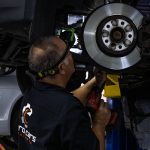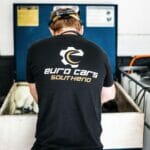
Range Rover Brake Maintenance: Ensuring Safety on and Off-Road
Maintaining the brake system of a luxury SUV like the Range Rover is crucial for both safety and performance. As a vehicle designed for diverse driving conditions, from city streets to rugged terrains, proper Range Rover maintenance ensures reliable stopping power when needed most.
The Brake System of Your Range Rover: An Overview
Modern Range Rovers feature sophisticated braking systems that combine multiple components working in harmony. The system includes brake pads, rotors, calipers, and advanced electronic controls. Each component plays a vital role in the vehicle’s stopping capability, making regular inspections and maintenance essential for optimal performance.
Regular Inspection Schedule
A comprehensive brake inspection should be performed every 15,000 miles or annually, depending on driving conditions. During harsh weather or frequent off-road adventures, more frequent checks may be necessary. Professional mechanics familiar with Range Rover maintenance can identify early signs of wear and prevent costly repairs.
Signs That Demand Immediate Attention
Unusual sounds like squealing or grinding while braking indicate potential issues requiring immediate attention. Vibrations in the brake pedal, reduced responsiveness, or a soft pedal feeling are warning signs that shouldn’t be ignored. Addressing these symptoms promptly helps maintain safety and prevents more extensive damage.
Brake Pad Replacement
Quality brake pads are essential for reliable stopping power. Range Rover vehicles typically require brake pad replacement every 30,000 to 50,000 miles, though actual timing varies based on driving habits and conditions. Using manufacturer-recommended parts ensures optimal performance and longevity.
Rotor Care and Maintenance
Brake rotors work alongside the pads to create the friction needed for stopping. Regular inspection for warping, scoring, or uneven wear helps maintain consistent braking performance. Professional Range Rover maintenance technicians can measure rotor thickness and determine when replacement is necessary.
Brake Fluid Maintenance
Clean brake fluid is crucial for proper system operation. The fluid should be checked regularly and replaced according to the manufacturer’s schedule, typically every two years. Contaminated or old brake fluid can lead to reduced braking efficiency and system damage.
Off-Road Considerations
Off-road driving places additional stress on braking systems. Sand, mud, and water exposure can accelerate wear and require more frequent maintenance. After off-road adventures, thorough inspection and cleaning of brake components help prevent long-term issues.
Professional vs. DIY Maintenance
While some basic brake maintenance tasks can be performed at home, complex Range Rover maintenance often requires specialized knowledge and equipment. Professional technicians have access to diagnostic tools and genuine parts that ensure proper repair and maintenance.
Preventive Care Tips
Regular washing helps prevent brake dust accumulation and corrosion. Avoiding aggressive driving habits and maintaining proper tire pressure contribute to brake system longevity. Following recommended maintenance schedules prevents unexpected issues and maintains optimal performance.
Performance Enhancement
Upgraded brake components can improve stopping power for specific driving conditions. However, modifications should be carefully considered and installed by qualified professionals to maintain vehicle safety and reliability.
Conclusion
Maintaining your Range Rover’s brake system requires attention to detail and regular professional care. Understanding the importance of proper maintenance helps ensure safety and reliability in all driving conditions.





